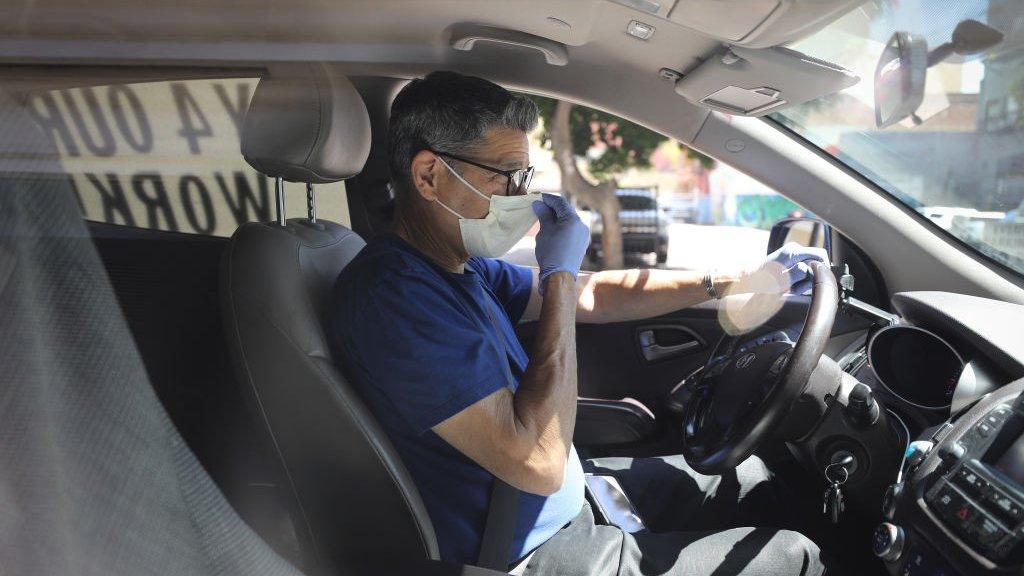Coronavirus: Uber tells all drivers to wear face masks
- Published
- comments
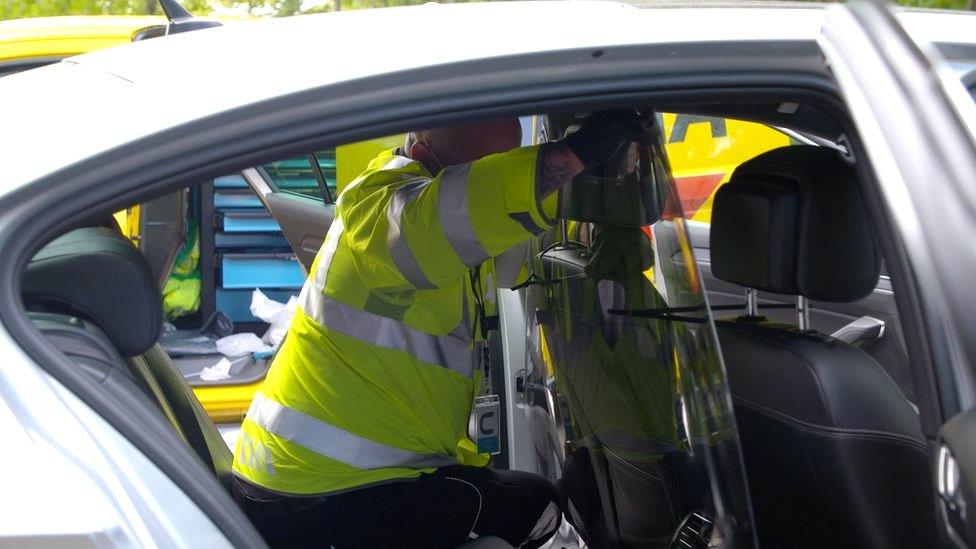
An AA engineer installing a perspex screen in a taxi for Uber
Uber drivers and passengers in most countries will have to wear face masks from next week as the ride-hailing firm toughens its coronavirus policy.
The new rule takes effect on Monday.
It applies to services in the US, Canada, Mexico, India and most of Europe, Latin America, the Middle East and Africa.
But the UK is not on the list, following government guidance which advises but does not require people to wear face coverings in confined spaces.
Although it is not making it compulsory to wear a face mask in the UK, Uber said it had distributed free protective equipment to UK drivers, including more than a million single-use face masks, as well as 95,000 cleaning sprays. In the coming weeks, it will hand out another two million masks.
"As well as working with Unilever to provide drivers with free sanitising products, Uber is distributing millions of masks and directly reimbursing drivers if they choose to source the PPE themselves," an Uber spokesman told the BBC.
At the same time, Uber, along with taxi firm Addison Lee, has announced new safety measures as the government looks to ease coronavirus restrictions and people return to work.
Addison Lee will fit perspex partition screens between drivers and passengers across its 4,000 vehicles next week.
And Uber is paying the AA to install partitions in 400 cars in Newcastle, Sunderland and Durham as part of an initial pilot.
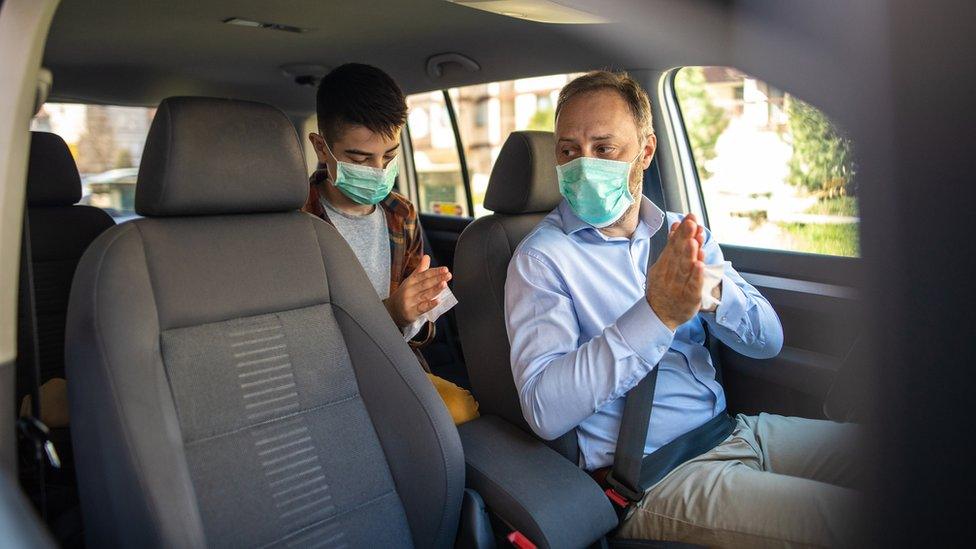
United Private Hire Drivers union wants it to be mandatory for both drivers and passengers to wear masks during journeys
"We know there is significant demand from drivers, passengers, businesses and the general public for more to be done to make transport cleaner and safer as we go back to work - including calls for the introduction of partition screens into private hire vehicles," said Liam Griffin, chief executive of London-based Addison Lee.
"That's why we have taken the decision to begin rolling out the installation of safety screens between drivers and passenger seats."
Uber said its pilot in the North East of England was crucial for the company to get a better understanding of how to carry passengers on journeys as safely as possible.
Uber is first trialling the partition screens in areas where it has been able to gain the permission of the regulator or city council, in order to ensure that the screens are installed safely.
On Wednesday, Transport for London (TfL) updated its guidance for taxi and private hire vehicle firms.
The regulator is advising firms to have drivers and passengers socially distance, with passengers sitting in the back seats of cars. It advised drivers to carry a bottle of hand sanitiser gel in their vehicle that contains at least 60% alcohol.
However, when it comes to the use of personal protective equipment (PPE) such as face masks, gloves or partition walls, TfL said it is waiting to hear from the London Strategic Coordination Group (SCG) on recommendations before mandating additional coronavirus prevention and control measures for taxis and private hire vehicles.
'Lethal combination'
The BBC understands that a number of taxi firms in the UK are seeking clarification from the government on health and safety precautions to take once the lockdown ends, and would prefer regulation rather than advice.
In Wales, taxi drivers told the BBC they experience anxiety with every passenger they pick up, and are still waiting for approval from their local councils before they can make any modifications to their vehicles, such as installing a screen.
"Two months into a public health emergency which has seen private hire drivers suffer one of the highest occupational mortality rates, yet TfL and the Department for Transport (DfT) are still not taking responsibility to introduce necessary safety controls," James Farrar, chair of the United Private Hire Drivers trade body, told the BBC.
"Poor regulatory standards and employment misclassification has become a lethal combination for desperately exploited drivers."
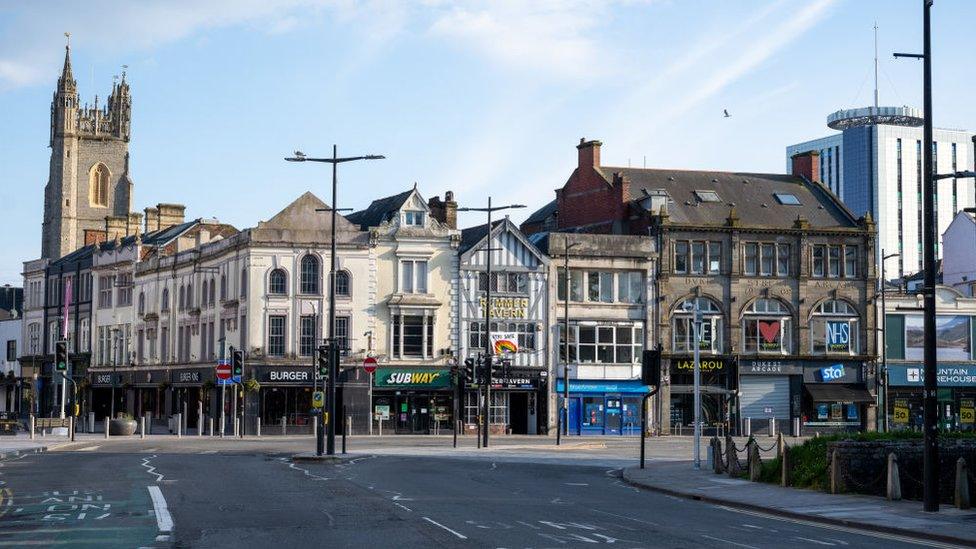
Taxi drivers have lost a lot of their income during the coronavirus income, as cities like Cardiff stand mostly deserted
The trade body is similarly concerned that Uber is not providing partition screens to its drivers in other parts of the UK, such as London, which has the largest concentration of Uber drivers in the country.
Mr Farrar wants to see Uber commit to limiting bookings to no more than two passengers per vehicle, and to make the wearing of masks mandatory for both drivers and passengers.
For now, there is no evidence available that demonstrates that partitions in taxis will reduce the risk of transmitting the coronavirus.
But there is some evidence that the use of cloth face coverings can help to reduce transmission of coronavirus infection where it is not possible for people to maintain a distance of 2m.
- Published14 May 2020
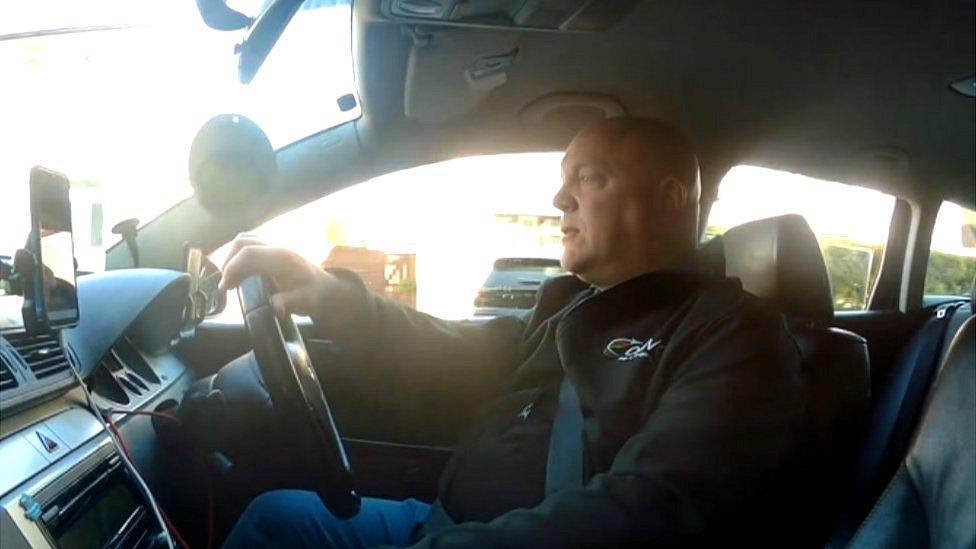
- Published7 May 2020
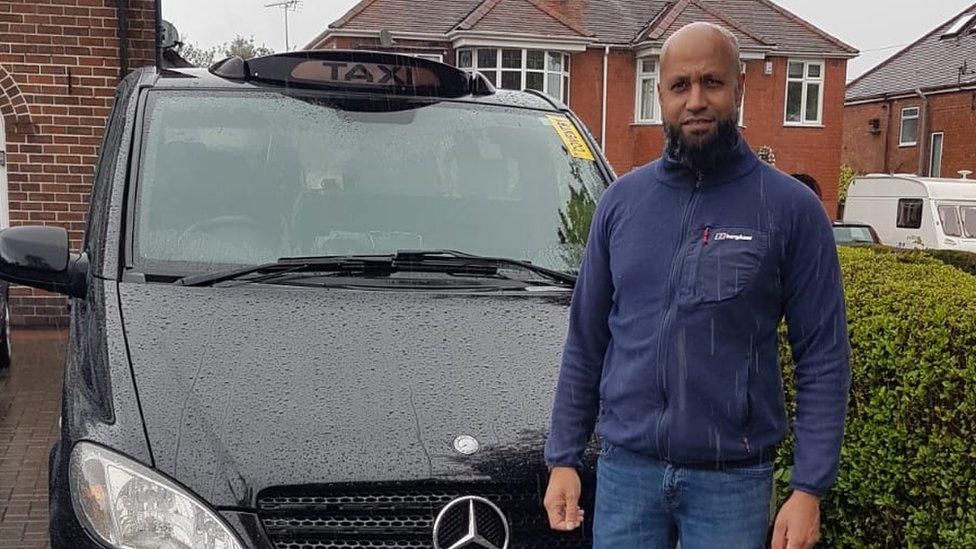
- Published7 May 2020
